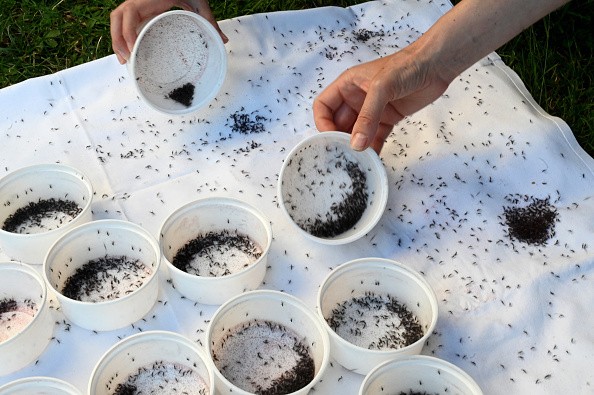Croatia is taking an innovative approach to combat the threat of mosquitoes, which are expected to increase in number and range due to climate change.
The country is releasing thousands of sterile male mosquitoes in Zagreb, the capital city, as part of a pilot project to reduce the population of invasive Asian Tiger mosquitoes, which can carry diseases, such as dengue, chikungunya, and Zika.
The project aims to prevent the spread of these diseases in Croatia, which is a popular tourist destination in the Mediterranean region.
How does the project work?

The project is based on the Sterile Insect Technique (SIT), which is a method of biological control that has been used for decades to control various pests, such as fruit flies, screwworms, and tsetse flies, as per Phys.org.
The method involves mass-rearing and sterilizing male insects in a laboratory, and then releasing them in the target area, where they mate with wild females.
Since the females can only mate once in their lifetime, the sterile males prevent them from producing offspring, thus reducing the population over time.
The project in Zagreb started in June 2021, when 100,000 sterile male mosquitoes were released in a high-risk area with thick vegetation where mosquitoes often breed.
The mosquitoes were produced by a laboratory in Italy, which uses gamma rays to sterilize them. They were then transported by air in special containers and released by hand or by drones in selected locations.
The project will continue until September, with weekly releases of 100,000 mosquitoes each time.
The project is monitored by entomologists from the Zagreb-based teaching institute of public health, who collect and analyze samples of mosquitoes from traps set up in the area.
They use molecular techniques to identify the species and sex of the mosquitoes, and to determine the ratio of sterile to wild males.
The goal is to achieve a ratio of at least 10:1, which is considered sufficient to suppress the population.
What are the benefits and challenges of the project?
The project has several benefits for public health and the environment.
By reducing the number of Asian Tiger mosquitoes, which are aggressive biters and active during the day, the project can lower the risk of disease transmission and improve the quality of life for residents and visitors, as per TheCitizen.
The project can also reduce the need for chemical insecticides, which can have negative impacts on human health and biodiversity.
The project also faces some challenges and limitations.
One challenge is to ensure that enough sterile males are released to outnumber the wild males, which can vary depending on environmental factors such as temperature, rainfall, and vegetation.
Another challenge is to prevent accidental release or escape of female mosquitoes from the laboratory or during transport, which could increase the population instead of reducing it.
A limitation of the project is that it only targets one species of mosquito, while there are other species that can also carry diseases or cause nuisance.
The Zagreb project is a pilot research that will offer useful information and experience for future SIT mosquito control applications in Croatia and other nations.
The International Atomic Energy Agency (IAEA), which advocates SIT as a secure and reliable pest management method, is a supporter of the initiative.
SIT has been successfully used for mosquito control in other countries, such as China, Italy, Brazil, and Mauritius.
SIT is also being tested for other mosquito species, such as Aedes aegypti and Anopheles gambiae, which are vectors of dengue, yellow fever, Zika, and malaria, respectively.
© 2025 NatureWorldNews.com All rights reserved. Do not reproduce without permission.





